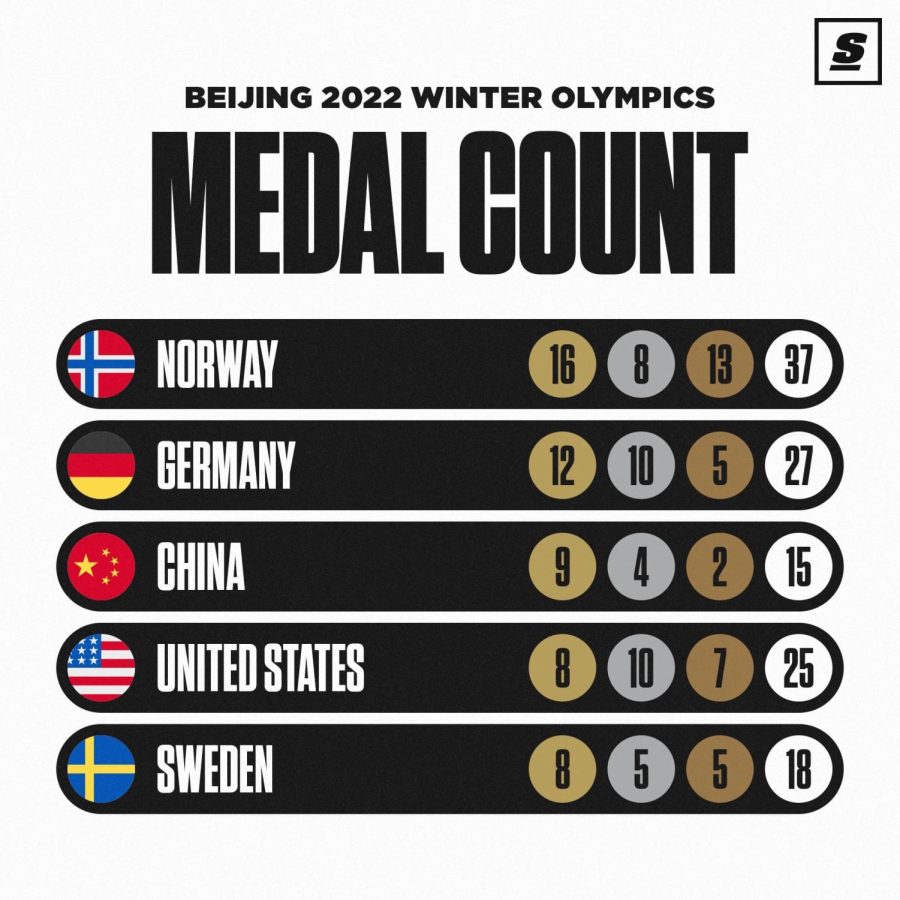Beijing Winter Olympics 2022
March 18, 2022
The Beijing 2022 Winter Olympics began on February 4th, with Chinese President Xi Jinping officially declaring them during the opening ceremony. The opening ceremony contained the usual performances showcasing the host country’s culture and history. This year’s ceremony utilized snowflakes to represent each competing country, bringing them together in unity at the close.
The parade of nations followed Olympic tradition, with the Greek delegation going first. The order of delegations following Greece was based on the stroke number in the first character of each country’s name in Chinese. It closed with the traditional lighting of the torch, which was significantly lit by Dinigeer Yilamujiang, an Uyghur cross-country skier.
The significance follows a flood of diplomatic boycotts due to China’s human rights abuses, including the genocide against the Uyghurs. Diplomatic boycotts allow athletes to compete in the games, representing their country, but the country will not send an official government envoy to the games, which are typically attended by high-ranking government officials. Countries also boycotting include Canada, Australia, and Britain. Contributing to the cause of the boycott is also China’s handling of Hong Kong.
In light of China’s continued human rights violations, many are wondering why China was selected to host. Beijing’s climate is not even ideal for a winter Olympics considering the small amount of snowfall the region receives. Originally, Poland, Ukraine, Sweden, and Norway were in the running to host, but due to various infrastructure disagreements and domestic opposition, they opted out. This left Kazakhstan and China to be chosen by the International Olympic Committee (IOC). While not officially stated, many speculate that China was chosen to host due to the relative newness of Kazakhstan to the Olympics compared to China, which hosted in 2008.
There are many comparisons between changes, not just between the Olympics, but also the development of China from 2008 to 2022. The opening ceremony of this year’s Winter Olympics is said to have been scaled down from 2008. This year’s opening ceremony is less than half the length of the 2008 Summer Olympics. This year, only 10% of the fireworks used in the summer Olympics were used. There are also significantly fewer performers, decreasing from 15,000 in 2008 to only 3,000 this year.
In total, the U.S. managed to earn 8 gold, 10 silver, and 7 bronze medals, ranking 4th among other competing countries. Athletes like Nathan Chen and Chloe Kim won gold medals in men’s singles figure skating and women’s halfpipe, respectively. Nathan Chen’s free short-form performance received the highest score ever earned in an international competition. His performance featured his signature quadruple axel and earned him the gold, making him the first-ever Asian American male figure skater to win Olympic gold.
Chloe Kim, securing gold in her first run during the event, became the first woman to win back-to-back gold medals in women’s halfpipe. In the men’s halfpipe, snowboarding icon Shaun White competed in his last Olympics, coming in 4th. His departure from the sport left many reflecting on how he grew the sport. White still plans to grow the sport, but as a mentor rather than a competitor.
The 2022 Winter Olympics debuted some of the world’s most talented athletes. As it comes to a close and athletes are returning home, many are eager to learn more about the people behind the athletes. The world commends the Winter 2022 Olympians and looks forward to the 2024 Paris Olympic Games.


